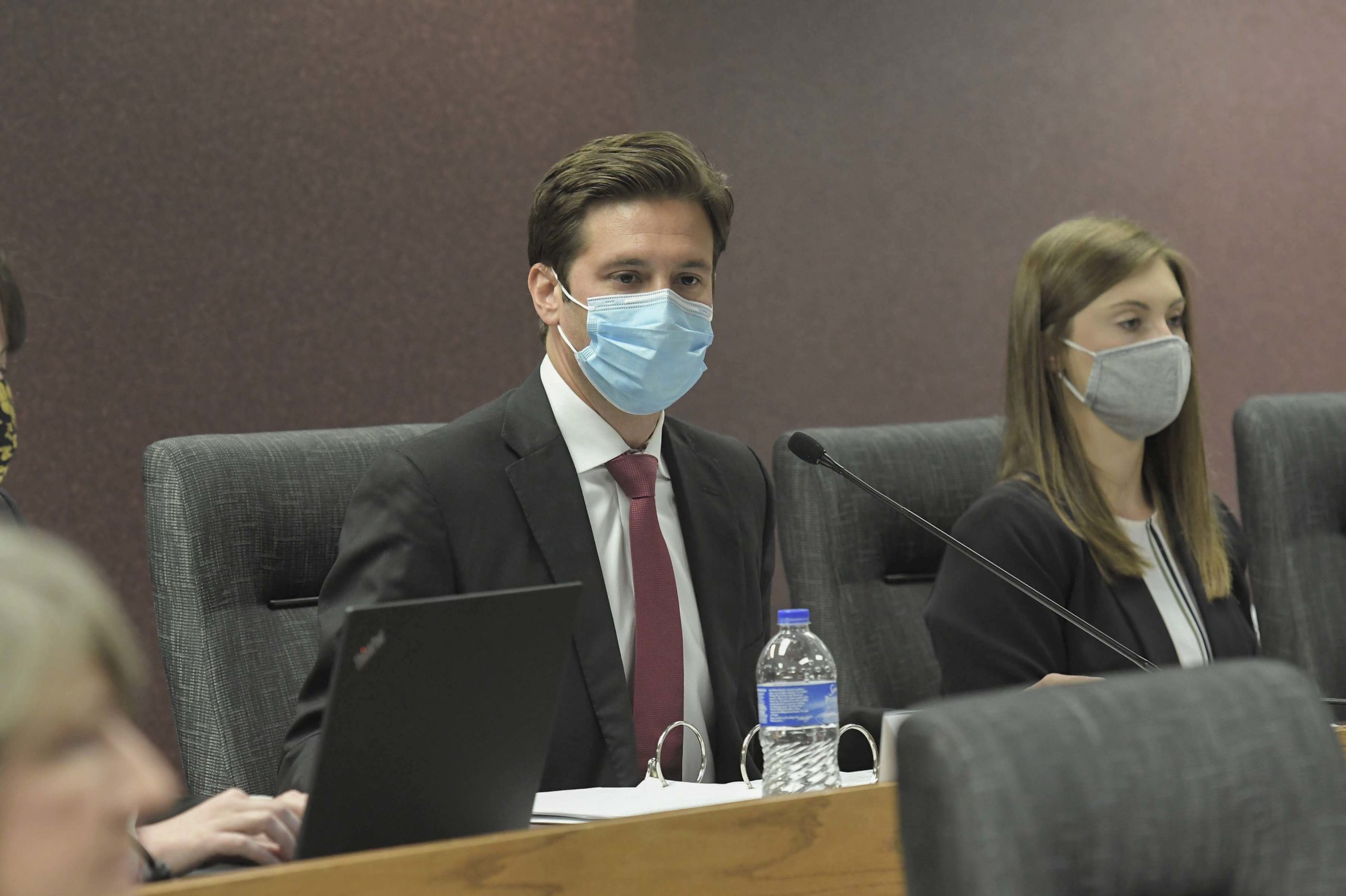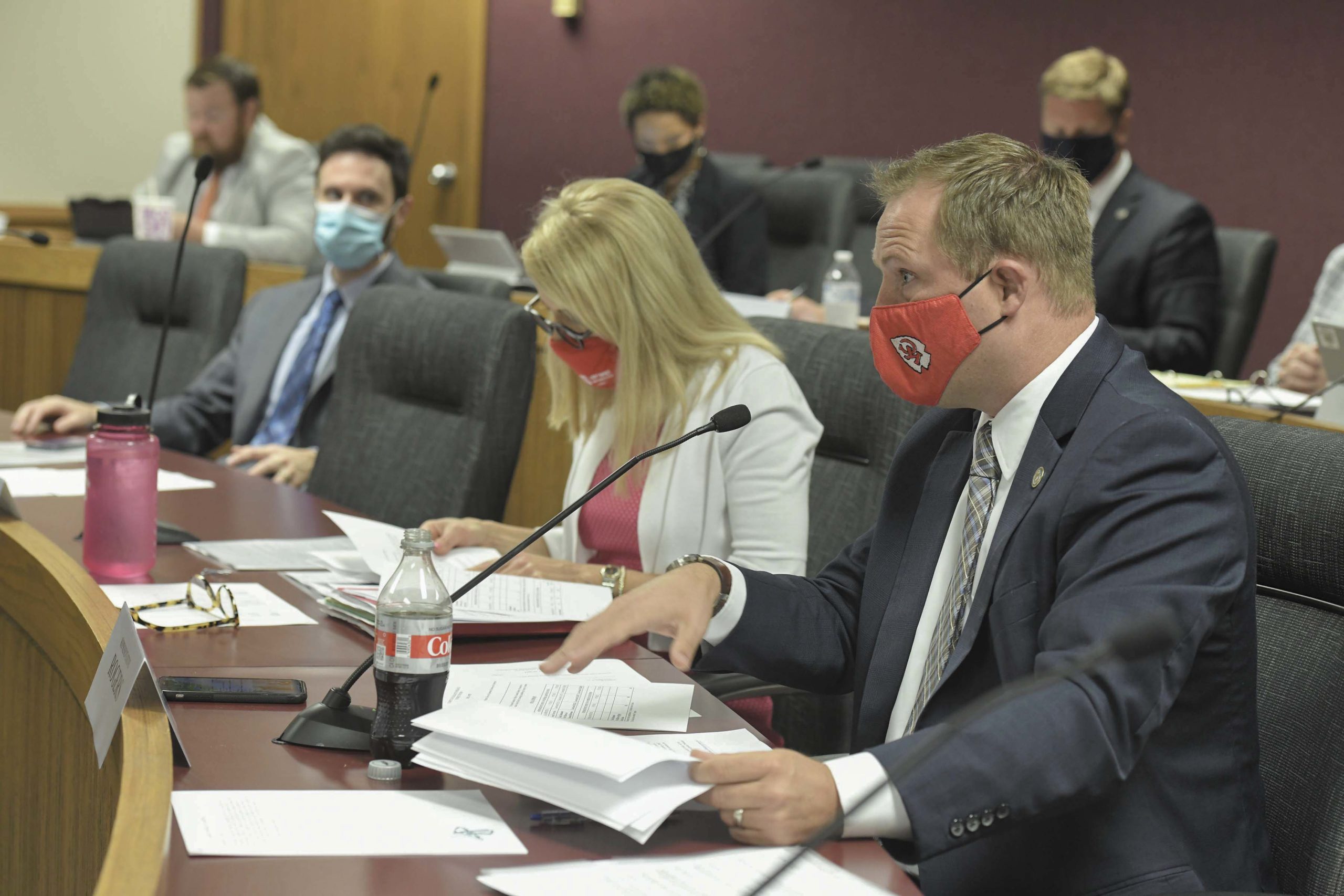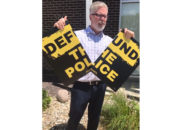JEFFERSON CITY, Mo. — After a chaotic stint in the Senate, the major provisions of the fitful special session on violent crime have made it to the lower chamber — albeit in six pieces.
It all started with SB 1, the flagship anti-crime bill on the Senate side. The bill was contentious in the upper chamber from the beginning, leading to a 12-hour debate a week and a half into the special session, before a compromise could be reached on juvenile certification and residency requirements.
But after the anti-crime bill passed out of the Senate and sat in a House committee, Gov. Mike Parson changed the course of special session; he expanded the call to include concurrent jurisdiction in the city of St. Louis. The controversial move would give the Attorney General’s Office the power to prosecute certain homicides in St. Louis: if a case is at least 90 days old, the chief law enforcement officer makes the request, and the circuit attorney has not yet filed charges.
The Senate bill stalled, and with no appetite for how it looked in Rep. David Gregory’s Judiciary Committee, House leadership ultimately decided to start over and take a piecemeal route.
“In an effort to protect the integrity of the lawmaking process, and to ensure these important issues are thoroughly vetted, we intend to simplify the process with single-subject bills so we can focus on the merits of each bill individually to produce legislation that makes our streets and neighborhoods safe,” a joint statement from Republican House leadership said.
Though 69 bills and one resolution have been filed in the House, only six have progressed through committees. And as of Monday morning, no concurrent jurisdiction bill has been assigned to a committee.
HB 2, sponsored by Rep. Barry Hovis, covers witness tampering and intimidation: An otherwise inadmissible witness statement could be used if the court finds evidence that the defendant attempted to prevent the witness from testifying and the witness failed to appear despite requests from the court. Proponents from law enforcement and legal backgrounds testified in committee that the bill would clarify existing law. The bill passed unanimously through the Judiciary Committee.
Rep. Ron Hicks sponsored HB 46, which would remove residency requirements in St. Louis for officers hired prior to Sept. 1, 2023. Supporters testified in committee that the city’s police department had more than 100 openings, and the residency requirement was a large barrier for potential applicants. Opponents argued that officers should live near their jurisdiction in order to foster relationships with the communities they serve.
The bill passed through the House Judiciary Committee with an amendment expanding the provision to other public safety employees, including firefighters and paramedics, within the city of St. Louis.

HB 66, sponsored by Rep. Jon Patterson, would create the “Pretrial Witness Protection Services Fund.” The fund would be distributed to law enforcement agencies through the Department of Public Safety. The bill passed unanimously through the Judiciary Committee.
HBs 11, 12, and 16, sponsored by Rep. Nick Schroer, make changes to provisions involving minors.
HB 11 would elevate the crime of endangering the welfare of a child from a misdemeanor to a first-degree felony. The bill passed unanimously through the Standing Committee on General Laws.
HB 12 intends to allow a court to order a hearing for children from the ages of 16 to 18 to be certified as adults. The original language on the Senate side set the range from 14 to 18 in the perfected bill. The House version also added an amendment requiring courts to hold a probable cause hearing prior to certification before passing out of the Special Committee on Criminal Justice.
HB 16 defines the unlawful transfer of a weapon to a minor as the lending or sale of a firearm to a minor for the purpose of interfering with or avoiding an arrest or investigation. The bill would remove a provision in current state law that excludes transfer from felony status if there is parental approval for the transaction. The bill passed out of General Laws.
All six bills passed out of multiple rules committees on Aug. 18 without much fanfare, allowing them to move forward to the House floor this week.
Already, multiple protests have broken out in downtown Jefferson City with demonstrators — lawmakers among them — speaking out against the scope of the special session. Protestors have called for the session to address the root of violent crime in Missouri through things such as greater access to education and employment opportunities.
Parson has said he’s “disappointed” that the special session has taken as long as it has; he originally called lawmakers back to Jefferson City on July 15, and it got underway in the Senate on July 27 before coming to a halt until after the primary elections in early August.

Cameron Gerber studied journalism at Lincoln University. Prior to Lincoln, he earned an associate’s degree from State Fair Community College. Cameron is a native of Eldon, Missouri.
Contact Cameron at cameron@themissouritimes.com.





























